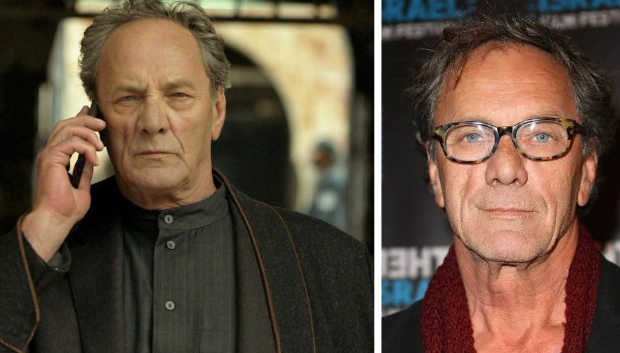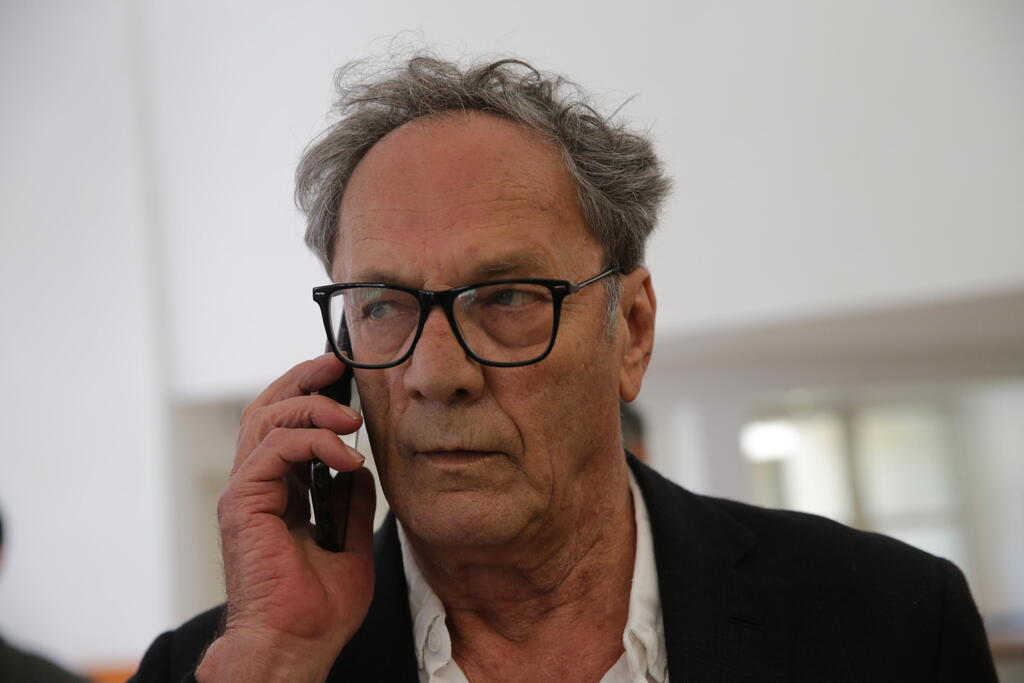Celebrity
Behind the Lens Mohammad Bakri’s Role in Shaping Palestinian Filmmaking
Published
3 months agoon
By
Bella P
Mohammad Bakri is more than just a filmmaker—he is a symbol of resistance, culture, and storytelling rooted in the Palestinian experience. Through his art, Bakri uses cinema as a powerful form of protest, giving voice to the struggles and resilience of his people.
Quick Bio
| Detail | Information |
|---|---|
| Full Name | Mohammad Bakri |
| Date of Birth | November 27, 1953 |
| Place of Birth | Bi’ina, Galilee, Palestine |
| Nationality | Palestinian |
| Profession | Actor, Film Director, Documentary Filmmaker |
| Years Active | 1983–present |
| Education | Tel Aviv University – Theater and Acting |
| Notable Works | Jenin, Jenin, The Olive Harvest |
| Languages | Arabic, Hebrew |
| Awards and Honors | Various international film festival awards |
Early Life and Education
Born in the small village of Bi’ina in the Galilee region, Mohammad Bakri grew up in a politically sensitive and culturally rich environment. From a young age, he was exposed to the complexities of identity, displacement, and national struggle that would later define his work. He pursued acting at Tel Aviv University, where he was often one of the few Arab students. This early exposure to both Palestinian societies shaped his perspective and sharpened his ability to reflect the Palestinian identity through performance.
Acting Career: A Dynamic Voice in Film and Theater

Before stepping behind the camera, Mohammad Bakri established himself as a powerful actor known for his emotional depth and range. His roles in films such as Cup Final, Beyond the Walls, and Private showcased his ability to portray characters navigating personal and political turmoil.
Bakri’s acting performances often explore themes of identity, resistance, and human dignity. He performed on Palestinian Stages, using his talent to confront social and political taboos. His fluency in Arabic and Hebrew allowed him to work across cultural lines, often becoming a bridge between two conflicting worlds.
Through his acting, Bakri has become one of the most recognizable faces in Palestinian cinema, representing the lived experiences of people under occupation and shedding light on the emotional and psychological toll of political conflict.
Transition to Directing: Telling Stories from Behind the Camera
Driven by a need for creative and political freedom, Mohammad Bakri made a decisive move from acting to directing. This transition allowed him to take full control of the narrative, bringing personal and collective stories to the forefront without compromise.
His directorial debut focused on themes close to home: displacement, trauma, and the human cost of occupation. Bakri uses the camera as a tool for truth and activism, offering a deeply emotional lens through which the world can better understand the Palestinian condition.
Through both documentary and fiction, Bakri invites audiences into intimate spaces—homes, refugee camps, and neighborhoods scarred by conflict—making the political intensely personal.
Jenin, Jenin: A Controversial Turning Point

Released in 2002, Jenin, Jenin became Mohammad Bakri‘s most controversial and defining work. The documentary captures the aftermath of the Zionsit military operation in the Jenin refugee camp, through interviews with survivors and local residents.
Political Resistance Through Art
For Mohammad Bakri, film is not just entertainment—it is a form of political resistance. Every story he tells challenges mainstream media portrayals and offers an alternative view grounded in Palestinian reality.
His films often expose the injustices of military occupation, land dispossession, and cultural erasure, turning cinema into a weapon of truth. By centering Palestinian voices and experiences, Bakri reclaims the narrative and uses art to dismantle stereotypes.
Palestinian Identity and Narrative in His Films
At the core of Bakri’s filmography is a powerful and complex exploration of Palestinian identity. His characters often face existential dilemmas: where is home, what does it mean to belong, and how do you preserve dignity under occupation?
Bakri’s commitment to portraying the emotional depth of Palestinian life has made his films deeply moving and globally relevant. They connect the local to the universal, making the Palestinian story one of human resilience and strength.
Reception and Controversy: Praise and Backlash
While Bakri has been celebrated internationally for his courageous filmmaking, his work has also faced censorship and hostility, particularly from zionist authorities. He has been accused of incitement, propaganda.
These criticisms, however, have only drawn more attention to his work, opening up dialogue about freedom of speech, artistic expression, and the role of cinema in political discourse. Bakri has received awards from major international film festivals, including recognition in Europe and the Arab world.
Collaborations and Influence in Palestinian and Arab Cinema
Mohammad Bakri has worked with some of the most important names in Arab cinema, including Elia Suleiman, Michel Khleifi, and Hany Abu-Assad. His collaborations have helped shape a new generation of filmmakers who view cinema as a medium for justice and cultural preservation.
He has mentored younger artists, appeared in independent films, and participated in cross-border productions that highlight the interconnectedness of struggle and solidarity across the Arab world. His influence extends beyond film, touching on broader issues of cultural identity, language, and memory.
The Power of Documentary Storytelling
Documentary filmmaking is where Mohammad Bakri shines brightest. His documentaries are not slick, polished productions—they are raw, urgent, and deeply emotional. He often uses handheld cameras, natural lighting, and real voices to give authenticity to his stories.
His films like Since You Left offer a blend of personal narrative and political reflection. This film, a tribute to his late friend Juliano Mer-Khamis, explores themes of loss, friendship, and resistance. Documentaries allow Bakri to speak truth to power without filter, reaching audiences who crave honesty and moral clarity in an era of information overload.
Challenges Faced as a Palestinian Filmmaker
Working in a politically charged environment, Bakri faces immense challenges. He often works with limited funding, faces censorship, and navigates a landscape where his very identity is politicized.
Distribution is another major hurdle. While his films are celebrated internationally, they are often blocked or limited in access locally. Legal challenges, personal threats, and political pressure have become part of his reality. Despite these obstacles, Bakri remains committed to his vision. His work stands as a testament to the perseverance of Palestinian culture, and the unbreakable spirit of its artists.
Legacy and Impact on Global Cinema
The legacy of Mohammad Bakri is one of resistance, honesty, and artistic integrity. He has changed the way Palestinian stories are told and received around the world. Through his films, he has humanized a people often reduced to headlines and statistics.
His work inspires filmmakers, activists, and audiences alike to look deeper, listen more closely, and resist silence. Bakri’s cinema reminds us that truth is powerful—and storytelling is a form of survival.
FAQs
Who is Mohammad Bakri?
Mohammad Bakri is a Palestinian actor and film director known for his politically charged films and documentaries that focus on Palestinian identity and resistance.
What is Mohammad Bakri famous for?
He is most known for his controversial documentary Jenin, Jenin, which captured the aftermath of the Zionsit military operation in the Jenin refugee camp.
What themes are common in Bakri’s work?
His films often explore themes of occupation, identity, resistance, and human rights within the Palestinian context.
Has Mohammad Bakri faced censorship?
Yes, many of his works have been banned or challenged in Zionsit courts, and he has faced personal and legal attacks for his films.
What languages does Bakri work in?
He works in both Arabic and Hebrew, which allows him to reach diverse audiences across the region.
Is Mohammad Bakri still active in the film industry?
Yes, he continues to act, direct, and mentor younger filmmakers in the Palestinian and Arab film industry.
What impact has Bakri had on Palestinian cinema?
He has helped shape a generation of politically conscious filmmakers and expanded the reach of Palestinian narratives globally.
Where can I watch his films?
His films are available at international film festivals, independent cinemas, and select online streaming platforms focusing on documentary and world cinema.
For More Updates And Stories Visit To: Dooper Magazine

Hunxho Age: Understanding Their Timeline and Milestones

Priah Ferguson Age: How Old She Is and Her Rising Career

Taylor Kinney Wedding: Who Is He Marrying and When

Druski Net Worth: A Deep Dive Into His Comedy Career and Financial Success

Mark Wahlberg Wife: Who She Is and Their Lasting Relationship

Stockton Rush Net Worth: A Detailed Look at His Wealth, Career, and Legacy

Denise Richards Husband: Who He Is, Marriage Details & Love Life Explained

Chase Stokes Height: Everything Fans Want to Know About the Outer Banks Star

Ed Helms Wife: Who He Married and His Family Life

Craig Conover Net Worth: reality TV, business ventures, and financial success

Sam Nivola Age: Understanding the Life and Career of a Rising Talent

Jessica Chastain Husband: Relationship Story and Family Life

Jennifer Lawrence net worth: financial journey of a Hollywood star

Brad Pitt Girlfriend: Love Life, Dating Timeline, and Updates

Lizzie Velasquez Net Worth: Life, Career, and Inspiring Journey

Craig Conover Net Worth: reality TV, business ventures, and financial success

Ed Helms Wife: Who He Married and His Family Life

Denise Richards Husband: Who He Is, Marriage Details & Love Life Explained

Mark Wahlberg Wife: Who She Is and Their Lasting Relationship

Chase Stokes Height: Everything Fans Want to Know About the Outer Banks Star

Hunxho Age: Understanding Their Timeline and Milestones

Priah Ferguson Age: How Old She Is and Her Rising Career

Taylor Kinney Wedding: Who Is He Marrying and When

Druski Net Worth: A Deep Dive Into His Comedy Career and Financial Success

Mark Wahlberg Wife: Who She Is and Their Lasting Relationship

Stockton Rush Net Worth: A Detailed Look at His Wealth, Career, and Legacy

Denise Richards Husband: Who He Is, Marriage Details & Love Life Explained

Chase Stokes Height: Everything Fans Want to Know About the Outer Banks Star

Ed Helms Wife: Who He Married and His Family Life

Craig Conover Net Worth: reality TV, business ventures, and financial success
Trending
-

 Celebrity10 months ago
Celebrity10 months agoWho Is Angela Simmons? All About Her Business, Fame, and Personal Life
-

 Celebrity11 months ago
Celebrity11 months agoWho Is Mindy Jennings? Inside the Life of Ken Jennings’ Wife
-

 Celebrity10 months ago
Celebrity10 months agoWho Is Dexter Keaton? Everything About Diane Keaton’s Daughter
-

 Celebrity10 months ago
Celebrity10 months agoWho Is Mikayla Demaiter? From Ice Hockey to Modeling Success
